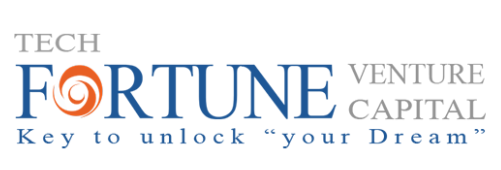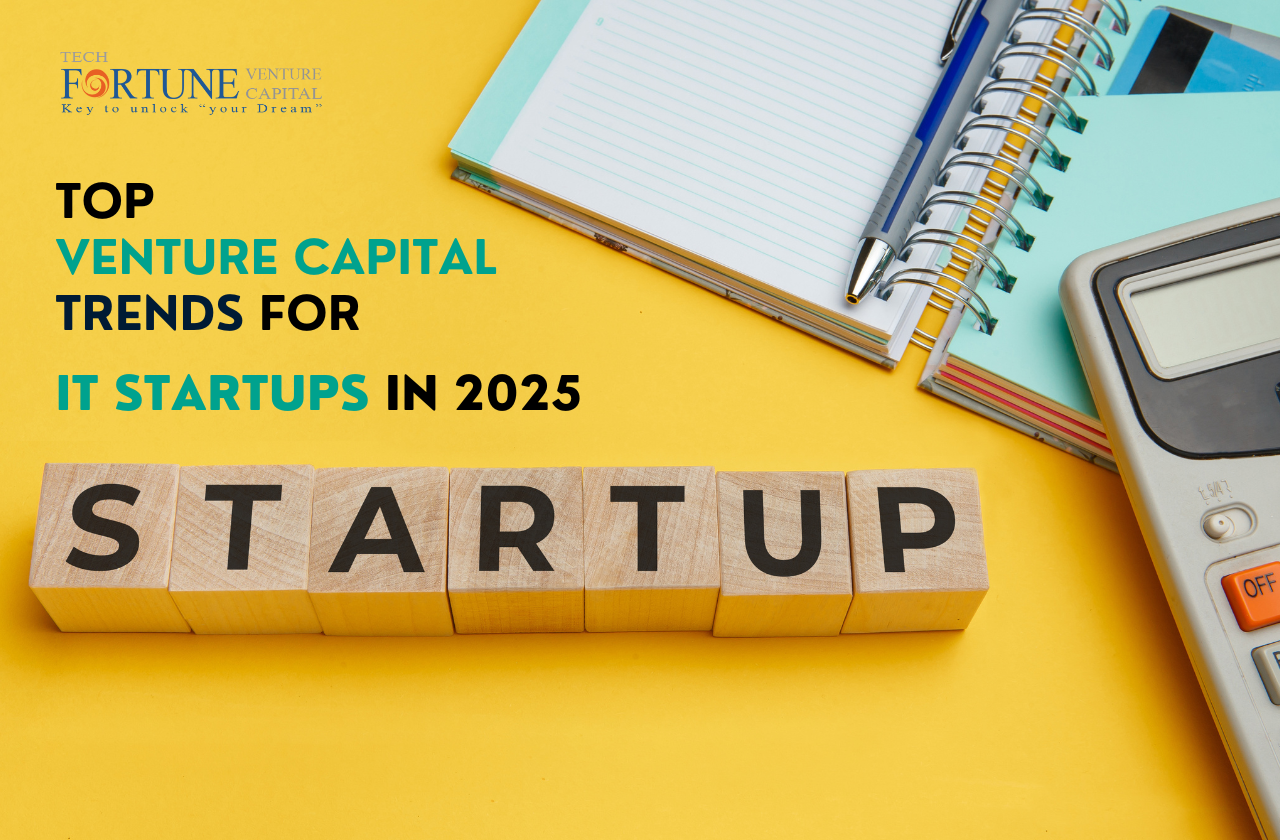“Top Venture Capital Trends for IT Startups in 2025”
“Adapt, innovate, and secure funding—2025’s IT startup game is changing fast!”
The venture capital (VC) landscape is evolving rapidly, shaped by technological advancements, investor preferences, and global economic conditions. For IT startup CEOs, staying ahead of these trends is crucial to securing investment and achieving sustainable growth. In 2025, investors are focusing on AI-driven analytics, sustainability, deep tech, profitability, alternative funding models, and regulatory factors. Understanding these shifts will help IT startups align their strategies for successful fundraising and expansion.
1. AI-Driven Investment Strategies: Data-Backed VC Decision-Making
Artificial Intelligence (AI) is no longer just an investment sector—it is also reshaping how venture capital firms identify and evaluate startups. Investors are increasingly using AI-powered tools to analyze market trends, predict industry shifts, and assess a startup’s potential before making investment decisions.
How IT Startups Can Leverage This Trend:
- AI Integration in Products: Startups that incorporate AI into their offerings, whether through automation, data analytics, or machine learning capabilities, will be more attractive to investors.
- AI-Enhanced Business Models: Companies that use AI for internal operations, customer engagement, and efficiency improvements will demonstrate innovation and scalability.
- Predictive Market Insights: Startups utilizing AI for market predictions, fraud detection, cybersecurity, and personalized user experiences will gain a competitive edge in attracting investment.
VC firms are using AI not only for investment decisions but also to manage portfolios, mitigate risks, and optimize their capital allocation. IT startups should embrace AI to align with this data-driven investment landscape.
2. Sustainability and Impact Investing: The IT Sector’s Role in a Greener Future
Sustainability is no longer optional—it’s a priority for investors in 2025. The rise of Environmental, Social, and Governance (ESG) initiatives has led VCs to seek IT startups that actively contribute to environmental sustainability.
Key Areas of Focus for IT Startups:
- Green Cloud Computing: Investors are favoring startups that promote energy-efficient data centers, cloud optimization, and carbon-neutral computing solutions.
- Eco-Friendly Software Solutions: SaaS companies that develop solutions to track carbon emissions, optimize logistics, and enhance corporate sustainability efforts are seeing increased funding.
- Renewable Energy Tech Integration: IT startups innovating in renewable energy management, smart grids, and IoT-driven energy optimization are attracting VC interest.
Startups that embed sustainability into their business models—whether through energy-efficient technology or solutions that enable businesses to meet sustainability goals—will have a competitive advantage in securing funding.
3. Sector-Specific Funding Growth: Specialization is Key
While general IT startups still receive funding, VCs are showing a growing preference for niche technology sectors with high growth potential. Investors are shifting focus toward startups that demonstrate deep expertise in specialized fields with reference to modern technologies.
How IT Startups Can Benefit:
- Develop Unique Technological IP: Startups that create proprietary innovations in deep tech or cybersecurity will attract investors looking for disruptive breakthroughs.
- Industry-Specific AI Solutions: Companies that offer tailored AI-driven solutions for fintech, healthcare, or logistics will stand out in a competitive market.
- Partnerships with Research Institutions: Collaborating with universities or R&D centers can enhance credibility and increase access to funding.
In 2025, IT startups that focus on industry-specific challenges and provide specialized solutions will be better positioned for investment.
4. Shift in Valuation Metrics: Profitability Over Rapid Growth
Gone are the days when VC firms prioritized hypergrowth without concern for profitability. The investment landscape is now emphasizing revenue stability, operational efficiency, and clear pathways to sustainable profits.
What Investors Want from IT Startups:
- Sustainable Revenue Models: Subscription-based (SaaS) businesses with strong customer retention and predictable revenue are favored.
- Cost-Efficiency & Scalability: Startups that manage operational costs effectively while scaling up will gain investor confidence.
- Profitability Milestones: Companies that demonstrate break-even points and profitability roadmaps will stand out in fundraising rounds.
IT startups must focus on long-term financial sustainability rather than short-term expansion at any cost. Investors are rewarding startups that prioritize solid financial fundamentals over aggressive, cash-burning growth strategies.
5. Alternative Fundraising Models: Expanding Beyond Traditional VC Funding
Startups no longer need to rely solely on equity-based venture capital investments. In 2025, alternative fundraising models are gaining traction, allowing IT startups to secure capital without giving up significant ownership.
How Startups Can Adapt:
- Diversify Funding Strategies: Explore hybrid models that mix equity financing with revenue-based loans or venture debt.
- Demonstrate Cash Flow Stability: Investors in alternative funding models prioritize startups with steady income streams.
- Leverage Digital Assets & Tokenization: IT startups in blockchain, Web3, and tokenized finance can tap into new capital sources.
6. Regulatory and Economic Considerations: Staying Compliant & Market-Ready
Macroeconomic factors such as interest rates, inflation, and evolving regulations are influencing VC strategies. As technology-driven businesses face increasing scrutiny, IT startups must be proactive in navigating compliance challenges.
Best Practices for IT Startups:
- Implement Robust Compliance Frameworks: Establish clear policies to meet data privacy laws and cybersecurity requirements.
- Engage Legal Experts Early: Consulting with regulatory specialists can help IT startups mitigate compliance risks.
- Stay Agile Amid Economic Shifts: Monitor market trends and adjust fundraising strategies based on economic conditions and investor sentiment.
By proactively addressing regulatory requirements, IT startups can gain investor trust and reduce fundraising roadblocks.
Final Thoughts:
“Tomorrow’s unicorns will be built on strategy, sustainability, and breakthrough tech!”
In 2025, venture capital trends are reshaping the funding landscape for IT startups. To attract investment, startup CEOs must align with key industry shifts, including:
- Leveraging AI for innovation and internal operations.
- Prioritizing sustainability and ESG-driven tech solutions.
- Specializing in high-growth sectors such as deep tech, cybersecurity, and fintech.
- Focusing on profitability and sustainable revenue models.
- Exploring alternative funding sources beyond traditional VC investment.
- Staying ahead of regulatory changes and compliance frameworks.
By understanding and adapting to these evolving trends, IT startups can secure funding, scale effectively, and achieve long-term success in an increasingly competitive market. The future of venture capital is data-driven, impact-focused, and innovation-led—IT startups that embrace these principles will thrive in 2025 and beyond.
Looking for the Right Investment Partner?
At Techfortune Venture Capital, we empower IT startups with strategic funding, expert guidance, and industry connections to accelerate growth. If you’re building an innovative tech company and need smart capital, reach out to us today!
FAQ:
Venture capitalists are shifting their focus from rapid growth to sustainable profitability. Startups with strong financial fundamentals, revenue consistency, and operational efficiency will have a competitive advantage. Investors now assess long-term viability, customer retention, and technological differentiation instead of just user acquisition rates.
AI is enhancing venture capital decision-making by automating due diligence, predicting market trends, and identifying high-potential startups. It streamlines investment strategies, mitigates risks, and ensures data-driven funding decisions, allowing investors to allocate resources more effectively to promising IT innovations.
Economic shifts, interest rate fluctuations, and evolving regulatory policies are impacting investment flows into IT startups. Investors are more cautious, prioritizing compliance, financial resilience, and adaptability to regulatory frameworks, ensuring startups can sustain operations despite economic uncertainties.

